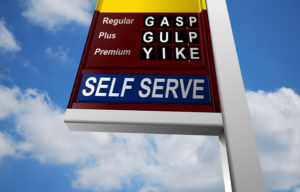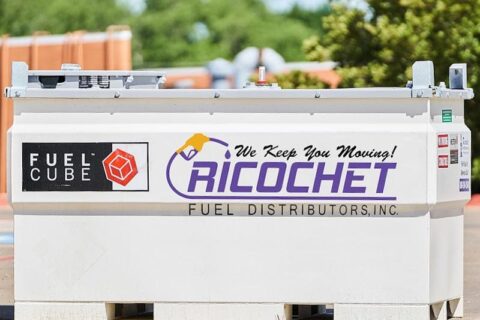Retail Fuel vs. Bulk Fuel: A Comprehensive Comparison
 The world’s reliance on fossil fuels remains constant, and so does the need for efficient distribution methods. Two primary methods of obtaining fuel are through retail fuel stations and bulk fuel delivery services. Both have their own advantages and disadvantages, making them suitable for different purposes. In this blog, we will compare retail fuel and bulk fuel in various aspects, including cost, convenience, environmental impact, and more.
The world’s reliance on fossil fuels remains constant, and so does the need for efficient distribution methods. Two primary methods of obtaining fuel are through retail fuel stations and bulk fuel delivery services. Both have their own advantages and disadvantages, making them suitable for different purposes. In this blog, we will compare retail fuel and bulk fuel in various aspects, including cost, convenience, environmental impact, and more.
Cost Efficiency
Retail Fuel:
Retail fuel stations are convenient but often more expensive per gallon due to the additional overhead costs, such as labor, maintenance, and land expenses.
The fluctuation in fuel prices at retail stations can make it challenging to budget for fuel costs effectively.
Retail fuel prices also tend to be higher in remote or less competitive areas.
Bulk Fuel:
Bulk fuel purchases generally result in lower per-gallon costs due to economies of scale.
Businesses that rely on bulk fuel delivery services can negotiate long-term contracts to secure stable and competitive prices.
Volume discounts and reduced delivery frequency can lead to significant cost savings over time.
Convenience
Retail Fuel:
Retail fuel stations are widely accessible, making them convenient for individual consumers.
They offer a range of fuel types and additional services like car washes, convenience stores, and restrooms.
Retail stations are open 24/7 in most locations, providing fuel at any time.
Bulk Fuel:
Bulk fuel is primarily designed for commercial and industrial use, which may not be convenient for individual consumers.
Businesses can schedule bulk fuel deliveries to match their operational needs and have fuel on-site when required.
Bulk fuel eliminates the need for frequent trips to retail stations and wasted time in convenience stores, saving time, resources, and money.
Environmental Impact
Retail Fuel:
Retail fuel stations can contribute to urban pollution due to vehicle congestion and emissions.
The transportation of fuel to retail stations results in additional energy consumption and emissions.
Retail stations may offer alternative fuels or electric charging stations to reduce the environmental impact.
Bulk Fuel:
Bulk fuel delivery services reduce the number of vehicles on the road, resulting in lower emissions and decreased traffic congestion.
The efficiency of bulk fuel delivery trucks, with larger storage capacity, minimizes the carbon footprint per gallon delivered.
Bulk fuel can include cleaner, low-sulfur, or biofuels, contributing to environmental sustainability.
Fuel Quality and Contamination
Retail Fuel:
Retail fuel stations maintain their tanks and filters, ensuring a consistent and clean supply.
Individual consumers have limited control over the fuel quality they receive but can choose premium or regular grades.
Fuel contamination risks are relatively low due to strict regulations and oversight.
Bulk Fuel:
Bulk fuel suppliers are responsible for the quality and maintenance of their storage tanks and filters.
Commercial users can specify the type and quality of fuel they require, reducing the risk of contamination.
Regular monitoring and maintenance are essential to prevent fuel contamination.
Fuel Delivery and Storage
Retail Fuel:
Retail fuel stations store fuel on-site in underground tanks, which may limit the volume they can provide.
Retail stations require a constant supply chain to replenish their tanks, which can result in occasional shortages during emergencies.
Individual consumers have limited control over their fuel storage.
Bulk Fuel:
Bulk fuel is stored in larger, above-ground or underground tanks, providing substantial storage capacity.
Businesses can stockpile bulk fuel, reducing their vulnerability to supply disruptions and price spikes.
Bulk fuel storage requires regular inspections and maintenance to ensure safety and quality.
Regulations and Compliance
Retail Fuel:
Retail fuel stations must adhere to local, state, and federal regulations concerning safety, environmental standards, and pricing transparency.
Regular inspections and compliance checks are common for retail stations.
Bulk Fuel:
Bulk fuel suppliers serving commercial clients must also comply with strict regulations related to fuel quality, safety, and environmental standards.
Businesses using bulk fuel must ensure that their storage and handling practices meet regulatory requirements.
In the battle between retail fuel and bulk fuel, the choice largely depends on your needs and priorities. Retail fuel stations offer convenience and accessibility for individual consumers but come at a higher cost. On the other hand, bulk fuel is more cost-effective, environmentally friendly, and offers greater control over fuel quality and storage. For businesses with substantial fuel demands, bulk fuel delivery services often prove to be the superior choice, offering cost savings and logistical advantages that can make a significant impact on their operations and bottom line. For all your bulk fuel, onsite tanks, and fuel management along with fuel card needs, contact Ricochet Fuel today!


